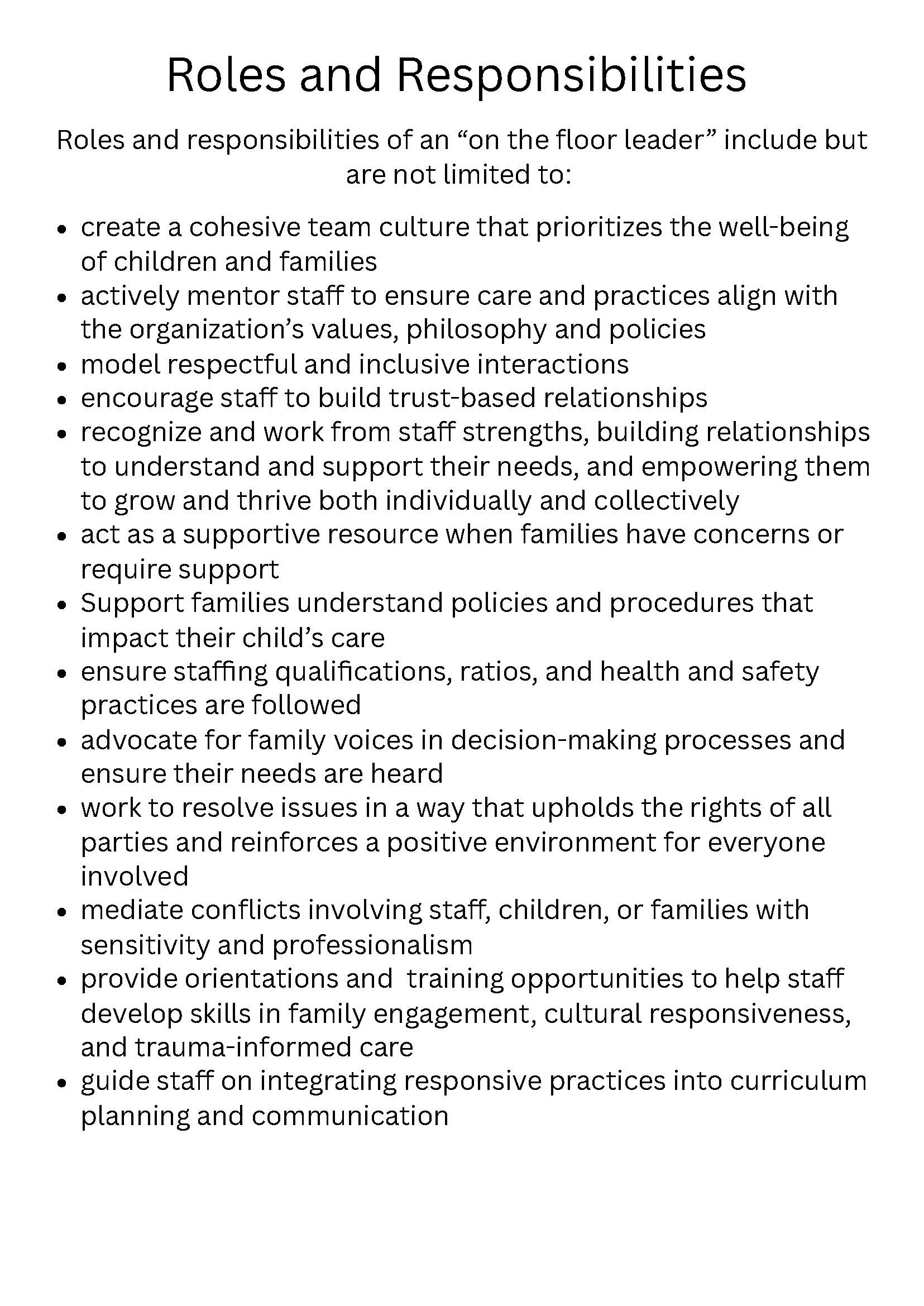Overview Module One
| Site: | RRU Open Educational Resources |
| Course: | Centre Management in Early Childcare and Education |
| Book: | Overview Module One |
| Printed by: | Guest user |
| Date: | Tuesday, 24 February 2026, 7:07 AM |
Welcome to Module 1: Leading Alongside
 “Over the years, leadership and the qualities it takes to be an effective leader have been colonized, so much so that many of us don’t even question the reality of what a good leader is.” (Greenway, 2023, para. 1)
“Over the years, leadership and the qualities it takes to be an effective leader have been colonized, so much so that many of us don’t even question the reality of what a good leader is.” (Greenway, 2023, para. 1)
The estimated time to complete Module One based on content, activities, and assessments is ten hours (10 hours or 600 minutes)
References
Greenway, J. (2023, May 7). Decolonize leadership: Qualities of a better leader. J. Greenway. https://www.jengreenway.com/post/decolonizing-leadership-qualities-of-a-better-leader
Learning outcomes serve as a valuable resource to guide your learning journey and ensure you can maximize your learning experience. The primary purpose of this section is to clearly communicate the intended learning outcomes of Module One: Leading Alongside.
The learning outcomes for Module One align with the content, activities, and assessments you will encounter throughout Module One, enabling you to track your growth and identify improvement opportunities.
After completing all activities and the reflective assessment within Module One, participants will:
- Understand the dispositions and skills required to carry out various leadership roles and responsibilities within childcare.
- Apply effective and respectful communication strategies with children, families, and staff, fostering collaboration and trust while upholding center policies and procedures, center philosophy, and licensing regulations.
An “on the floor” leader in childcare has many roles and responsibilities.
An “on the floor” leader in childcare may have titles such as Director, Manager, ECE, Floor Manager, and Site Manager. The variety of titles represents a variety of roles and responsibilities.
Module one should leave you with the understanding that childcare sites have different leadership structures. Whatever the title, it is important that they are trained Early Childhood Educators who are leading Early Childhood programs. Having skilled and educated Early Childhood Educators leading, ensures that choices are made from an understanding of the field.

The Child Care Sector Human Resources Council's HR Toolkit contains a chapter on supervision, another excellent resource for reviewing the roles and responsibilities of managers and supervisors.
Reference
Childcare Human Resources Sector Council (n.d.). Supervision. HR Toolkit. https://www.ccsc-cssge.ca/hr-resource-centre/hr-toolkit/retention/supervision
Beyond the practical responsibilities, this course emphasizes cultivating respectful and responsive dispositions and practices that foster a respectful and collaborative culture within the centre, laying the groundwork for a thriving and connected environment.
Some of these essential skills and dispositions include:
- Active Listening: Prioritizing understanding others' perspectives without judgment.
- Empathy: Demonstrating care and concern for the experiences and feelings of others.
- Humility: Recognizing the strengths and contributions of others and being open to feedback.
- Open Communication: Encouraging honest dialogue and transparency in decision-making.
- Flexibility: Adapting to different needs and perspectives to support the team effectively.
- Empowerment: Encouraging team members to take initiative and make decisions.
- Inclusivity: Valuing diverse voices and ensuring everyone feels seen and heard.
- Collaboration: Fostering teamwork and co-creation of ideas and solutions.
- Trust-building: Establishing reliability, fairness, and mutual respect in relationships.
- Accountability: Leading by example and taking responsibility for decisions and actions.
- Vision-sharing: Aligning team efforts with shared goals and values to inspire collective purpose.
- Supportiveness: Providing resources, guidance, and encouragement to help others succeed.
- Which of these dispositions is most influential on your leadership style?
- How do you hold space for the educators, children and families using these dispositions?
Document your thoughts in your journal.
Module One Activities and Assessments
The activities within Module One include:
- ACTIVITY 1.1 | Shared Leadership and Peer Mentorship Explore how to bring teams together and consider how shared leadership and peer mentoring can support a collective vision for your centre.
- ACTIVITY 1.2 | Leading Through Communication Reflect on your approach to leading by example on the floor, focusing on effective communication and navigating conflict and difficult conversations.
- ACTIVITY 1.3 | Fostering Collaborative and Reflective Practices Consider how you might open a collaborative dialogue to create a shared vision and philosophy with staffing, families and children at your centre.